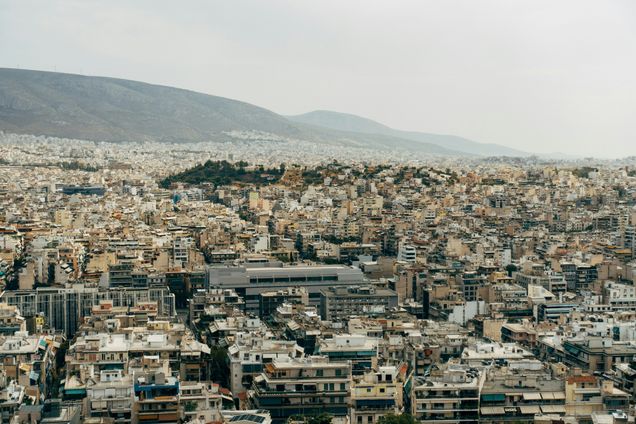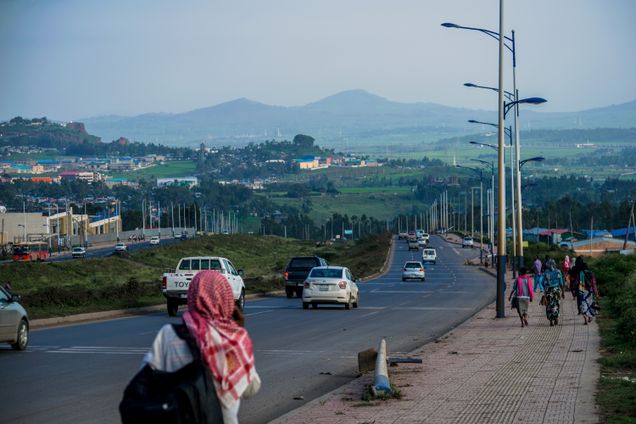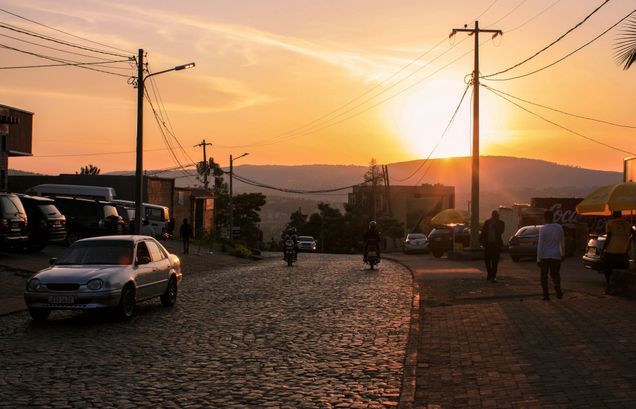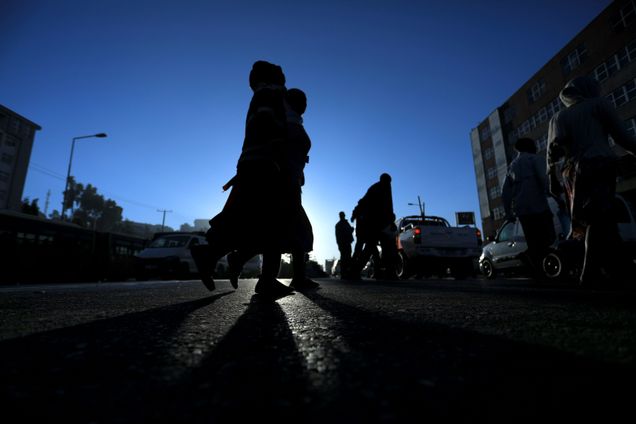GDP Center Round-Up: 2024 Summer in the Field Research Outcomes

With research projects spanning from Ghana to Greece, the 2024 cohort of Summer in the Field Fellows have successfully completed their fellowships.
Sponsored by the Boston University Global Development Policy Center, the Summer in the Field Fellowship Program offers stipends ranging from $6,000 to $8,000 to a select group of Boston University graduate students. This support allows them to engage in unpaid internships or conduct field research for their dissertation projects, making these otherwise financially challenging opportunities accessible.
In line with the GDP Center’s mission of advancing policy-oriented research for financial stability, human well-being and environmental sustainability across the globe, the fellows tackled topics like evaluating mental health frameworks amongst Greek social workers, political gender quotas in Mexico, large-scale public transport interventions and more.
Below, see a summary of their experiences:
Summer in the Field: Evaluating the Liberation Health Model Amongst Greek Social Workers

The Liberation Health Model is a clinical framework that acknowledges the sociopolitical factors that contribute to a person’s mental health challenges. Julia DeAngelo traveled to Greece to support training sessions, conduct focus groups and site visits and engage in mixed methods analysis in order to help enable this clinical framework to be further used globally.
For the study, a group of 10 Greek social workers were recruited from different social service settings to engage in a series of eight training sessions, from which several key themes emerged. First, front-line social work practitioners showed eagerness to learn about and apply this model, actively participating in training and sharing stories of integrating it into their ongoing work. Second, the pilot highlighted the model’s value to the social workers themselves, not only equipping them with skills and strategies to effectively work with community members but also providing them with personal therapeutic benefits. Read the blog.
Summer in the Field: Show Me How You Move – Developing Methodology for Estimating Demand for Transportation in Addis Ababa, Ethiopia

In rapidly urbanizing cities like Addis Ababa, transport infrastructure serves as a crucial foundation for economic growth, social connectivity and overall quality of life. Over the summer, Anastasiia Arbuzova worked on the Ethiopia Transport Study to help design a larger-scale public transport intervention in Addis Ababa.
Focusing on understanding public transportation demand with its potential to serve a larger population cost-effectively, she developed and tested new passenger trip tracking methods that would yield reliable data on public transport usage using a survey administered via three different modes: phone calls, SMS messages or a messenger-app chatbot. She also helped test three incentive schemes for cost reporting during the pilot study. Read the blog.
Summer in the Field: Implementing Political Gender Quotas: Lessons from Mexico

While Mexico’s system of gender quotas is enshrined in its constitution and has existed as part of federal law for decades, a 2014 amendment requires political parties to adhere to “rules to ensure gender parity in the nomination of candidates in federal and local congressional elections,” striving to bring these systems to the local level, in many cases for the first time.
This summer, John Hassett set out to study the effectiveness of the specific implementation of the quotas and their effect on policy outcomes by collecting detailed data on ballots, election outcomes, local policy initiatives and more from various government agencies in Mexico. While the results are still preliminary, there is undoubtedly an important lesson for policymakers, as well as vindication for scholars who have argued that women bring a unique lens to governing. Read the blog.
Summer in the Field: Three Effective Ways to Use Routinely Collected Data to Evaluate Health Programs — Insights from Rwanda’s Mass Drug Administration Program

Christian Mazimpaka traveled to his home country of Rwanda to partner with the Rwanda Biomedical Center (RBC) to collect data evaluating the coverage of the mass drug administration (MDA) program for schistosomiasis and soil-transmitted helminthiasis, the two most common Neglected Tropical Diseases (NTDs) in the country.
Evaluating health programs using routinely collected data is cost-effective, but presents challenges like data inconsistencies that affect accurate evaluations. His research found three effective ways to use this data to assess such programs: engaging directly with data managers and program staff, triangulating data from multiple sources, and conducting qualitative interviews for contextual understanding. Read the blog.
Summer in the Field: Understanding Gender Politics in the Context of Clientelism and Social Networks in Hyderabad, India

Women’s Self-Help Groups (SHGs), microcredit groups that come together for economic and social empowerment, have been shown to improve women’s political participation by providing them with avenues to build political networks and create institutionalized spaces to increase social ties within patriarchal societies.
Vidhu Priya Mukundan spent the summer in Hyderabad, India to better understand the role of SHG leaders as channels of communication between the state and women and how they work in the presence of existing problem-solving networks of slum leaders that are usually male and affiliated with political parties. She also sought to understand the gendered gatekeeping of politics by building a research team, training them on data collection and conducting surveys across 15 slums in the city. Read the blog.
Summer in the Field: Understanding Gendered Mobility in Urban Ethiopia – Insights from a Pilot Study

Seynedhee Avenie traveled to Ethiopia to code CommCare surveys and establish evaluation mechanisms for a pilot transport study, which explored how mobility and travel demand differ by gender, particularly for women.
Her work aimed to identify the most effective methods for surveying and incentivizing participants to reliably map gender disparities in transportation access. The findings provide a strong foundation for a comprehensive public-sector intervention, drawing on successful private-sector models, to develop an inclusive, safe and efficient transportation system for all residents of Addis Ababa. Read the blog.
Summer in the Field: Why People Don’t Register Deaths in Ghana

Funerals are big events in Ghana with people often borrowing heavily to carry out elaborate celebrations and planning them for months, sometimes years. Despite this fastidious planning, however, Ghanaians often skip an important aspect of death and burial: getting the paperwork done.
This summer, Vasudha Ramakrishna conducted research in Accra and Tamale in Northern Ghana, interviewing various stakeholders, registrars at the registration offices, mortuary men, sextons at burial grounds, village chiefs and imams, to understand the demand and supply side constraints surrounding death registrations. She found that large variation in registrations by place of death, gender, religion, region and income, among other characteristics. Read the blog.
*
Learn more about the Summer in the Field Fellowship Program.